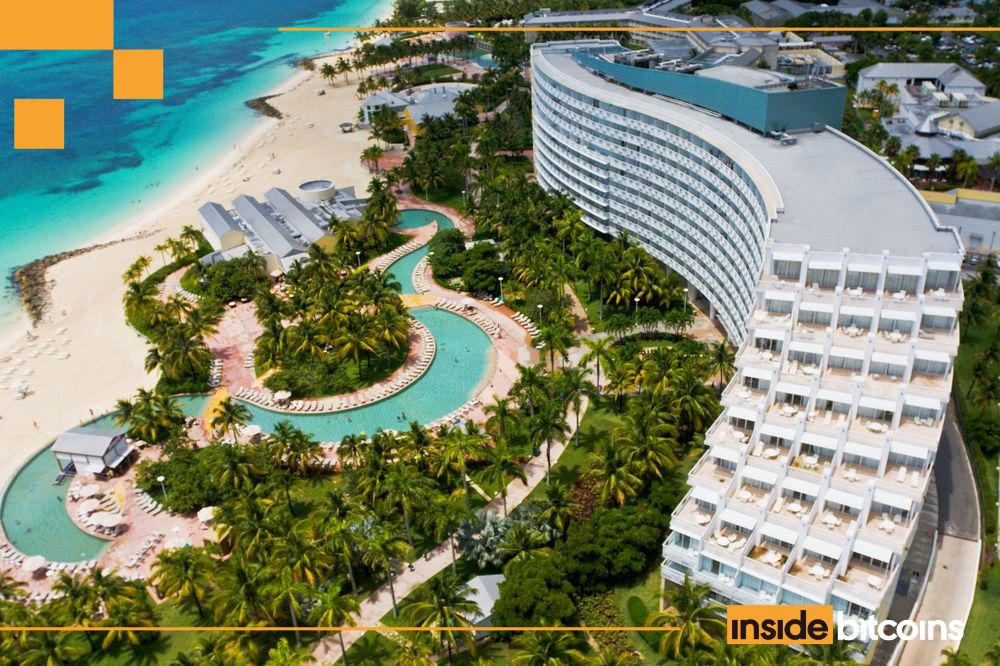After years of uncertainty and several failed redevelopment attempts, Grand Bahama’s flagship resort property is finally on track for a major revival. The signing of a heads of agreement between Concord Wilshire Capital (CWC) and the Bahamian government marks a significant turning point for the island’s tourism sector, potentially creating thousands of new jobs while revitalizing a property that has struggled since suffering hurricane damage nearly a decade ago.
Historic Agreement Promises Resort Renaissance
A milestone agreement was reached on Thursday when Concord Wilshire Capital formalized plans with the Bahamian government to transform the Grand Lucayan Resort into a modern integrated resort village. The deal involves a substantial financial commitment of $827 million to completely reimagine the existing property, bringing new life to a resort that has faced significant challenges in recent years.
This project will offer thousands of Bahamians opportunities to earn
Prime Minister Philip Davis expressed satisfaction with the agreement, acknowledging that while the process took longer than initially anticipated, the result represents a positive step forward for Grand Bahama’s economy. The Prime Minister emphasized that this development aligns with the government’s priority of putting Bahamians first, creating meaningful economic opportunities for local residents.
“This project will offer thousands of Bahamians opportunities to earn, grow and build futures for themselves and their families,” Davis noted in his comments following the signing ceremony. The agreement stipulates that at least 80% of the workforce at the redeveloped property must be Bahamian, ensuring local residents benefit directly from this major investment.
Comprehensive Development Vision
The redevelopment plan encompasses a complete transformation of the existing resort into a modern integrated destination. Rather than simply renovating current structures, the project calls for demolishing outdated facilities to make way for entirely new amenities designed to attract international visitors.
The refreshed property will feature a 350-room hotel accompanied by a 120-unit timeshare complex, providing varied accommodation options for different types of travelers. Additionally, plans include a redesigned golf course, a marina catering to boating enthusiasts, and a dedicated cruise resort experience to capitalize on the region’s strong cruise tourism market.
One of the centerpieces of the development will be a completely refurbished 25,000-square-foot casino featuring both indoor and outdoor gaming areas. This dual-environment approach allows visitors to enjoy gaming experiences tailored to their preferences while taking advantage of the Bahamas’ tropical climate.
Economic Impact and Employment Opportunities
According to projections shared during the announcement, the redevelopment initiative is expected to generate approximately 3,000 jobs for the local economy. This includes 1,320 positions during the construction phase and 1,750 permanent jobs once the resort is operational. The hotel operation alone is anticipated to create 450 jobs, with additional employment opportunities coming from the casino and various entertainment facilities throughout the complex.
Nate Sirang, President of CWC, characterized the signing as a “pivotal moment” for the Grand Lucayan Resort and expressed his company’s vision of creating a “powerful economic resort engine” benefiting the entire island of Grand Bahama. Sirang emphasized that the new resort would provide job opportunities that could potentially bring expatriate Bahamians back home, reversing some of the economic migration the island has experienced.
“We have a clear plan to redevelop this property and are committed to integrating local contractors, professionals, and businesses into the process,” Sirang stated, underlining CWC’s commitment to working with the local community.
Environmental Considerations
Large-scale resort developments inevitably raise questions about environmental sustainability. The Grand Lucayan redevelopment plan includes measures to minimize environmental impact and promote responsible tourism.
Sustainable Design and Operations
Modern building practices will be employed to ensure energy efficiency, water conservation, and waste reduction. The redesigned golf course will incorporate native landscaping and environmentally friendly maintenance practices. The marina will be constructed with safeguards to protect marine life and coastal habitats.
Community Engagement
CWC has pledged to engage with local stakeholders, including environmental groups and community organizations, to ensure that the redevelopment aligns with the island’s long-term ecological goals. Educational programs and partnerships with local schools and universities are also planned to promote environmental awareness.
Overcoming Past Setbacks
This successful agreement comes after multiple failed attempts to revitalize the Grand Lucayan property, which has struggled to recapture its former glory following the devastation caused by Hurricane Matthew in 2016. The category 5 hurricane caused catastrophic damage across the Bahamas, with the Grand Lucayan sustaining significant structural damage that hampered its operations.
The Bahamian government purchased the property in 2018 for $65 million in an effort to preserve jobs and prevent further economic decline in the region. Since then, finding a suitable development partner has proven challenging, with several promising deals ultimately falling through.
A notable previous attempt involved Royal Caribbean Cruises Ltd. and Mexico’s ITM Group, which signed a letter of intent to purchase the resort for $65 million in 2020. Their ambitious proposal included transforming the property into a theme park with five-star accommodations and water-based family entertainment, while also redeveloping Freeport Harbor into a premier cruise destination. However, the Bahamian government eventually declined this proposal, determining it was not in the country’s best interest.
Another attempt involved Electra America Hospitality Group (EAHG), which entered into an agreement with Lucayan Renewal Holdings to purchase the resort for $100 million in 2022. That deal similarly failed to reach completion.
Island History and Tourism Significance
The Grand Lucayan Resort is situated on Grand Bahama Island, which has a rich history dating back thousands of years. The island was originally inhabited by Siboney Indians approximately 7,000 years ago, followed by Lucayan people who were present when Christopher Columbus arrived in the region.
Grand Bahama’s transformation from a secluded hideaway for pirates to a sought-after tourist destination was primarily driven by American businessman Wallace Groves in partnership with British financier Sir Charles Hayward. During the early 1950s, they negotiated with the Bahamian government for 50,000 acres of land to establish what would become the city of Freeport.
Today, approximately 50,000 people live on Grand Bahama Island, with tourism serving as a critical economic pillar. The successful redevelopment of the Grand Lucayan Resort is viewed as essential for reinvigorating the island’s tourism sector and providing sustainable economic opportunities for local residents.
Implementation Timeline and Next Steps
With the heads of agreement now signed, the project enters a new phase of detailed planning and regulatory approvals. If all proceeds according to schedule, construction is expected to begin within three months after final regulatory approvals are secured. However, the complete redevelopment will likely take several years to fully realize.
This latest development has been characterized on social media as “a new chapter for Grand Bahama” that represents more than just a standalone project but rather a comprehensive initiative to revitalize the island’s economy.
The transformation of Grand Lucayan into a 36-acre cruise ship destination is expected to attract significant additional visitor traffic to Grand Bahama, potentially reshaping the island’s tourism landscape for decades to come.
Physical Casinos Resorts and Competition from the Online Gaming World
As the Grand Lucayan Resort embarks on its ambitious redesign, it enters an increasingly competitive landscape shaped by both traditional casino resorts and the rapid rise of online gaming platforms. Physical resorts like Grand Lucayan are investing heavily in luxury amenities, entertainment offerings, and customer service to appeal to a broader and younger demographic. These enhancements are designed to create memorable, immersive experiences that go far beyond gaming alone-offering guests world-class accommodations, fine dining, live entertainment, spas, and recreational activities. Such comprehensive resort experiences are difficult for online platforms to replicate, as they rely on the allure of in-person socialization, the excitement of live events, and the tangible atmosphere of a bustling casino floor. Resorts also leverage strategic partnerships and technological innovations, such as integrated apps for personalized guest services, to further enhance the on-site experience and foster guest loyalty.
However, the surge in online gaming presents a formidable challenge to traditional casino resorts. Online casinos offer unparalleled convenience, allowing players to access a wide variety of games from the comfort of their homes or even while traveling. These platforms are rapidly evolving, with features like instant payouts, personalized promotions, and seamless integration with digital wallets and loyalty programs. For many guests, especially younger and tech-savvy travelers, the flexibility and accessibility of online gaming are highly attractive, particularly the ability to bet using cryptocurrencies. Some resorts are responding by integrating online casino experiences into their offerings, allowing guests to engage in digital gaming from their hotel rooms or poolside, thus blending the best of both worlds. This hybrid approach not only enhances guest engagement and satisfaction but also opens up new revenue streams and helps resorts remain competitive in an industry where consumer preferences are shifting rapidly toward digital convenience and innovation.


